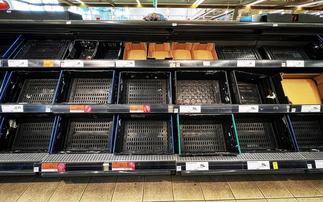Leading paper producer plans to support economic development of 500 villages surrounding its supply chain
One of the world's largest pulp and paper producers yesterday announced plans to support the sustainable economic development of 500 villages in the landscapes surrounding its supply chain.
Asia Pulp & Paper Group (APP) announced the commitment at the ongoing UN climate conference in Paris, says the programme aims to show that economic development can occur in a way that supports the protection of Indonesia's forests.
"A key theme of COP21 is to ensure that economic development goes hand-in-hand with environmental protection," said Aida Greenbury, managing director of sustainability at APP, in a statement. "We believe that this new agroforestry programme will help communities to achieve economic development while protecting Indonesia's forests."
APP will deliver the new commitment through pilot community programmes which promote alternative livelihoods to slash and burn clearing of forests. Potential programmes include the rearing of livestock, sustainable fruit and vegetable farming techniques, and responsible forestry.
"These programmes will help to reduce the pressure on Indonesia's remaining natural forests whilst simultaneously improving the livelihoods of local communities," the company said, adding that programmes will build upon local community knowledge by bringing in best practice and applicable techniques from industry and academia.
"The issues facing Indonesia's forests need to be managed at the landscape level, and local communities have a very important stake in the forest," said Greenbury. "Whilst these programmes are at an early pilot stage, we will be working to help introduce and spread sustainable farming techniques that are compatible with forest protection."
The Indonesian company committed to ending all deforestation of natural forests in 2013, following a decades-long campaign by environmental activists against its logging activities. The move was widely welcomed by green groups. However, a Rainforest Alliance report released earlier this year found APP still faces major challenges in implementing its goals, not least because other companies and groups continue to clear natural forests in the region even if APP and its suppliers are not.
Rainforest Alliance also highlighted the limited progress APP had made on its commitments to start reforesting already-cleared land and to better protect the country's peatlands, which are major carbon sinks. In August, the firm announced plans to flood 7,000 hectares of its plantations in Indonesia, in a bid to restore five areas of peatlands that have been identified as "critical" for carbon storage.
This article is part of BusinessGreen's Road to Paris hub, hosted in association with PwC.







